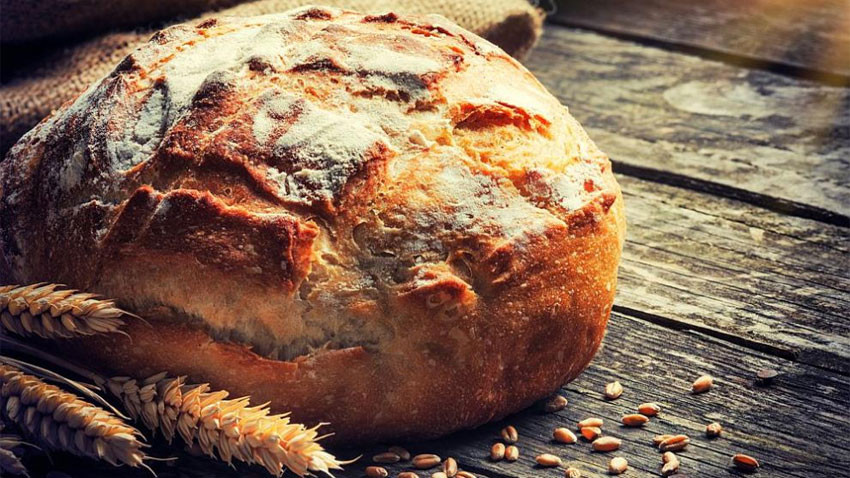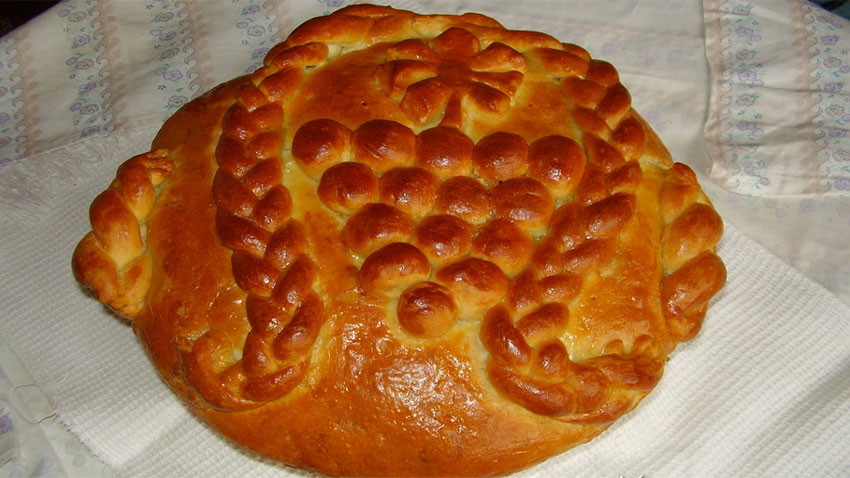
“A new day, a new year,” Bulgarian people used to say on Ignazhden (Day of St. Ignatius of Antioch, marked on December 20). According to folk beliefs, it is on this day when the “young year starts.” The man who first enters one’s home on this day as guest is of significant importance- if he is a good, wealthy and lucky man, he would bring well-being to the household, too. That is why on Ignazhden it was not accepted to visit someone without invitation. People did not want to leave the house without a reason.

According to the traditional beliefs of Bulgarian people it is on Ignazhden when the labor of the Virgin Mary started. The festive Christmas-New Year cycle of holidays begins, accompanied by various dishes and ritual breads, special rituals and songs...

Early in the morning of Ignazhden, women prepared the dough. After getting up, they took the hackle comb for hemp and scooped a little dough with it saying, "This is for the kadi!" In this case, "kadi" is a code name for various diseases. Then they kneaded a little loaf from this dough, but they did not bake it, but instead left it somewhere to dry. Later, they used the loaf as cure - one put a little piece of it in honey and gave it to the person who was ill. With two fingers they took some of the dough and made a cross sign on one of the wooden beams in the house to make evil run away. It was only after that when women started preparing the bread. They made as many loaves as family members are and one more they kept for Christmas Eve. In many regions of Bulgaria people used to make other types of bread too. For example, In Northeastern Bulgaria, people prepared a special loaf of bread called "Ignat bread" and gave a piece to all family members and also placed little pieces in barns.

An interesting custom has been described by Dimitar Marinov, which existed in his time (end of the 19th - early 20th century) in some villages near Rousse. The custom is called “preservation of leaven.” As the ethnographer explained, this custom had a magical character and was therefore forbidden by priests. “The ritual should exist in other places too, but people keep it a secret," Marinov writes.

For the ritual table on Christmas Eve, several loaves of bread were prepared, which have different significance. The most important is the God’s loaf. This bread is a bloodless sacrifice, dedicated to God and the household. Its decoration of loaf involves a cross. When preparing the dough it is forbidden to use a knife. A prosphora seal print is placed in the middle. In many villages people also prepared bread called “Chapel dedicated to the young God.”

The second category of ritual bread is dedicated to agriculture, cattle breeding, and household ... The bread, called “Harman”, is covered with decorations of haystacks. Outside the fence, three dogs born on a Saturday considered untouchable by "evil spirits" stay on guard. After blessing the bread with incense, the loaf is given to the plough man and some part of it to his oxen. There is also a tradition of making bread, on which symbols for a shepherd and a herd are placed.

People would give bread to “koledari” who would visit all the homes and sing carols on Christmas Eve . The loaves are usually made from two curved dough sticks. Where the ends are joined, people used to make an image of roses. Each housewife made the bread according to her inherited knowledge and her own skills. But the most important thing was to observe the deep meaning of every ritual and its smallest details.

English translation: Alexander Markov
Photos: BGNES and archive‘The Bulgarian horo is a kind of magic — an enchanted circle that pulses with the unique energy of our spirit, our traditions and our identity,’ says journalist Milena Milotinova, who recently presented her new documentary The Magic of the Bulgarian..
The Eastern Rhodopes come to life in the heart of Sofia – with authentic flavoуrs, music and craftsmanship . Residents of the Bulgaria capital have a chance to immerse themselves in the atmosphere of Momchilgrad Municipality and its cultural and natural..
The second annual Bean and Sausage Festival promises to be an unforgettable celebration of flavour and folklore in Zhitnitsa , a village in southern Bulgaria. On 7 September, the grounds of the local equestrian centre will host food lovers..

+359 2 9336 661
